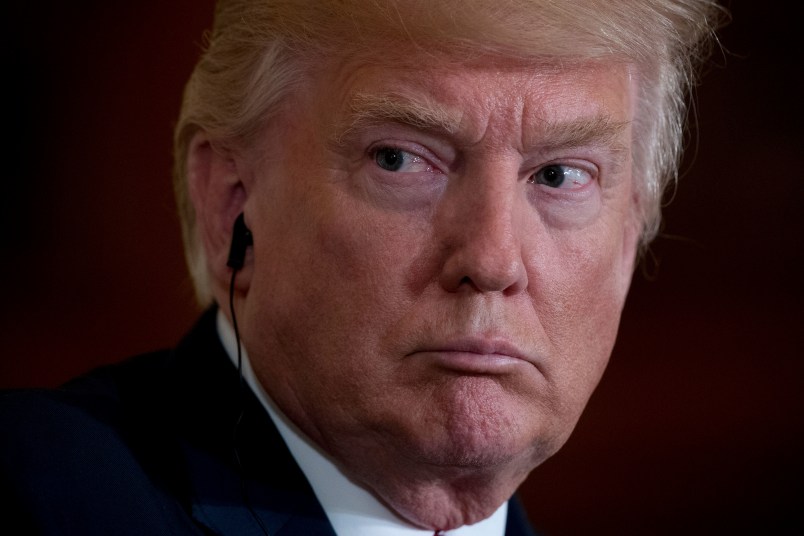If President Trump makes good on his threat to halt $10 billion in Obamacare subsidies to insurers in 2018, known as cost-sharing reduction payments, the federal government would spend a net $2.3 billion more due to anticipated premium hikes, a Kaiser Family Foundation study has found.
“We estimate that the increased cost to the federal government of higher premium tax credits would actually be 23% more than the savings from eliminating cost-sharing reduction payments,” the study, released Tuesday, said.

The cost-sharing reduction payments subsidize insurers for keeping out-of-pocket costs down for low income consumers, as mandated by the Affordable Care Act. They were the target of a House GOP lawsuit launched against the Obama administration in 2014 which alleged the payments are illegal because they were not explicitly appropriated by Congress. A federal judge agreed, but allowed the payments to continue while the case is appealed. The proceedings are currently paused as the Trump administration and the House Republicans figure out their next moves. But insurers and other health care industry stakeholders are getting increasingly vocal in their calls for some sort of clarification on the long-term fate of the payments, which 7 million consumers benefit from.
It’s estimated that ending the payments would prompt insurers to jack up premiums by 19 percent to recoup the lost revenue or exit the individual market altogether.
Because, under Obamacare, the federal government also offers subsidies to consumers between 100-400 percent of the poverty line for their individual premiums, and those subsidy levels rise and fall with the average premium for a certain plan, much of that increase in premiums would be picked up by the government. (The cost-sharing subsidies, meanwhile, benefit those making 100-250 percent of the federal poverty line).
Kaiser estimated that when extended out to the 10 year budget window, the feds would end up spending $31 billion more on the individual premium hikes than what the government would save by ending the CSR payments.
Trump has floated ending the payments as a way of forcing Democrats to negotiate on an Obamacare repeal measure, which has faltered in the House. Congressional Dems are now seeking to have the payments permanently funded as part of the broader government spending package being hashed to avoid a government shutdown at the end of the week.







Aaaaaahahahahahahaaaaaaa!
Like that wasn’t foreseeable!
New day, same …
But they’ll carry on with the kabuki of repeal and replace, and a fair number of GOP-controlled states will refuse to expand Medicaid or do so only after tossing in a bunch of useless, wasteful drug testing requirements. Accepting the ACA means admitting Obama wasn’t the horrible Maoist Kenyan Muslim they all said he was.
@outsidertrading618 It really does feel like at least 18 months since we had a competent president.
This isn’t #MAGA – it’s #GMAB: Good Money After Bad.
Everyone is reporting this as a bug rather than a feature. The “fact” that government spending on the ACA is increasing is yet another reason to cut medicaid and give a tax cut to the rich.